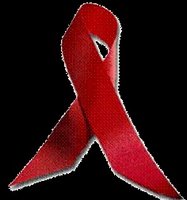Highly Drug-Resistant Strain of HIV
I give credit to the author of this article and thank him for writing this piece. Normally, I would not blog out an existing article, but I feel that this one is particularly important. Please forgive me, PlanetOut and Mr. Lavers.
Mike Lavers, PlanetOut Network
Friday, February 11, 2005 / 04:33 PM
Officials at New York City's Department of Health and Mental Hygiene (DOHMH) announced Friday that a city resident has been diagnosed with a highly drug-resistant strain of HIV that rapidly progresses into full-blown AIDS.
The man, in his mid-40s, told health officials that he had unprotected anal sex with a number of male partners, often under the influence of crystal methamphetamine. Health officials told reporters during a press conference in Manhattan that the man was first diagnosed with the strain, 3-DCR HIV, last December and "appears to have been recently infected." They also indicated that the man has since developed AIDS.
DOHMH Commissioner Dr. Thomas R. Frieden said the presence of this strain of HIV in the city underscores the dangers associated with having unprotected sex and using crystal meth. He urged New Yorkers, and especially men who have sex with men, to protect themselves.
"This case is a wake-up call," Frieden said. "It's a wake-up call to men who have sex with men, particularly those who may use crystal methamphetamine."
Ana Oliveira, executive director of Gay Men's Health Crisis, reiterated Frieden's comments. She added that the man's diagnosis reinforces the need for ongoing HIV prevention initiatives.
"We have to double our efforts and resources to maintain treatment and prevention education for people who are infected as well as those who are not," Oliveira said during the press conference. "New Yorkers must be vigilant and know that infection with resistant strains of HIV can be avoided."
In recent years, drug resistance has become more common among those living with HIV. The DOHMH reported that strains of 3-DCR HIV are resistant to three of the four antiviral drugs most commonly prescribed: nucleoside reverse transcriptase inhibitors, non-nucleoside reverse transcriptase inhibitors and protease inhibitors.
Officials also said that diagnoses of 3-DCR HIV are extremely rare among newly diagnosed and previously untreated patients. They also noted that the pattern of drug resistance and rapid progression to AIDS -- two to three months in the case diagnosed in New York -- may not have been seen previously.
Nevertheless, groups such as Gay Men of African Descent (GMAD), a New York-based organization, said Friday's announcement is cause for concern.
"This is the news we have all been fearing," GMAD Executive Director Tokes M. Osubu said during Friday's news conference. "While the recent advances in HIV treatment have led to the improvement of countless lives, we have always known that many people respond poorly to these therapies and for many others, the side effects are devastating."
Categories: HIV/AIDS medical+information








0 Comments:
Post a Comment
<< Home